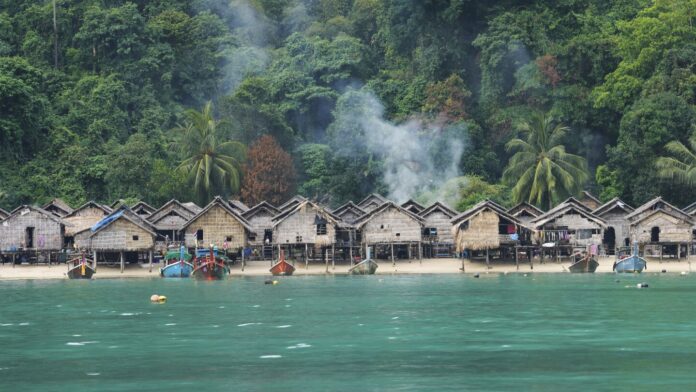Suriyan Klathale, known as Hook, recalls his childhood as a Moken, living on a boat. The community struggles to maintain traditions amid changes, seeking legal recognition to preserve their identity.
Suriyan Klathale, known as Hook, grew up on a kabang, a boat his family navigated through Thailand’s southern waters. By age three, he was swimming and diving in the ocean, which served as his backyard. Today, Hook and the Moken community have settled on land, and their cherished memories of ocean life are fading as powerful changes reshape their lives.
The Moken, an indigenous group from Thailand and Myanmar, gained attention after the 2004 Indian Ocean Tsunami for their deep understanding of ocean waves. They helped save lives by warning tourists when the water receded, signaling the need for higher ground. Now, the community senses the loss of their traditional way of life as they grapple with modernization.
Activists are advocating for their rights, seeking formal recognition through a proposed bill called the Protection and Promotion of Ethnic Groups’ Way of Life. This legislation aims to preserve their identity, ensuring access to education, health care, and land. Hook emphasizes the kabang’s significance, reflecting the Moken’s history; it symbolizes family life and generations, marking the transition to adulthood through boat building.
Source : The water was their livelihood. Now Thailand’s sea nomads work to preserve a vanishing way of life


